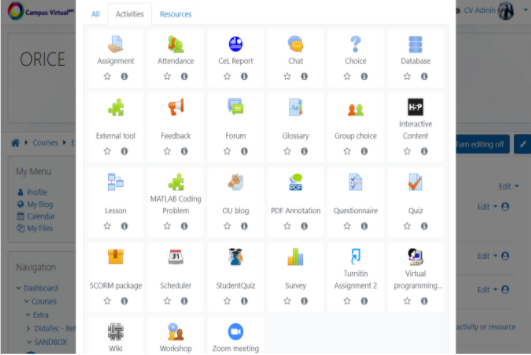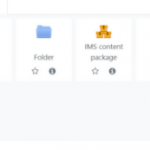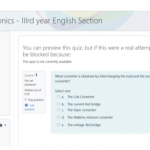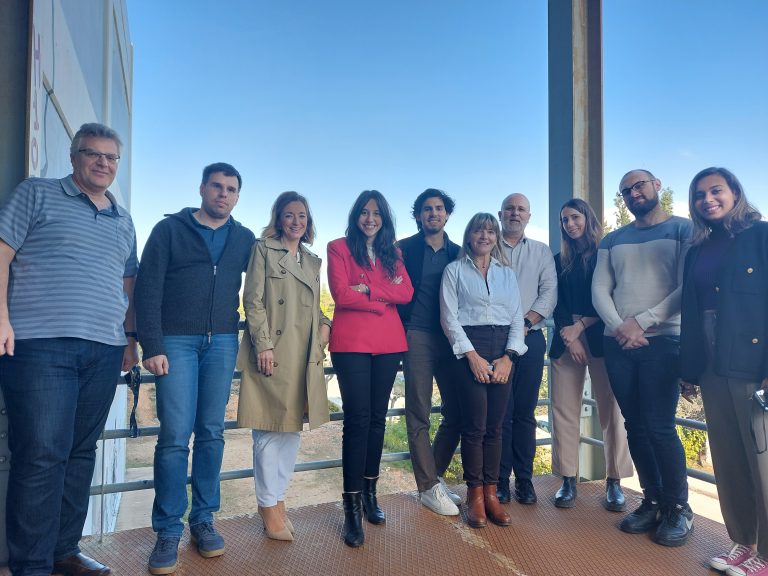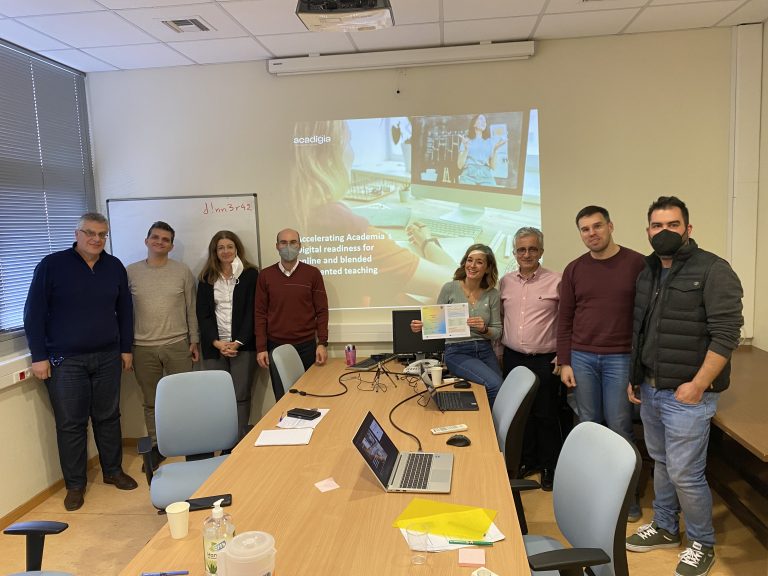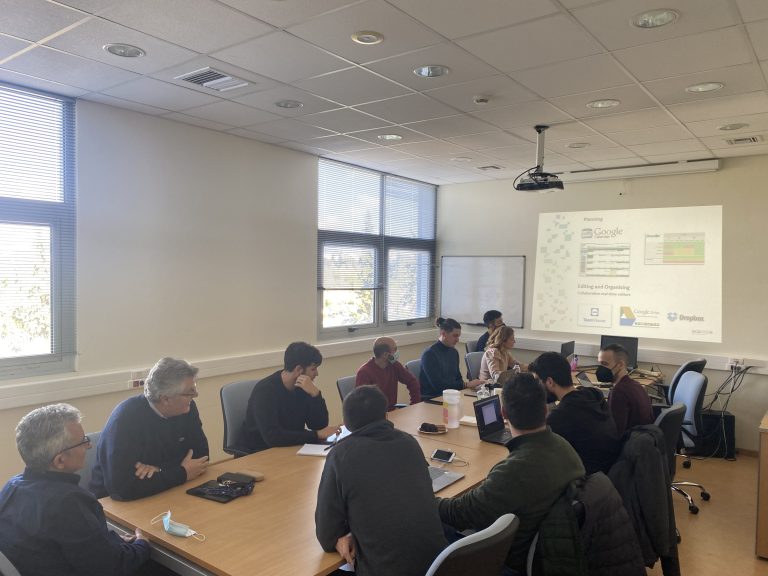Moodle is the most popular open-source Learning Management System. It provides the framework for conducting online teaching and learning. With Moodle, teachers can create and organize course materials and activities, communicate with students, assess their activity, and manage the whole pedagogical process. It is easily extendable through plugins either developed by the community, or custom designed and coded at the request of participants to the educational process.
The partners of the ACADIGIA project used the Digital Competence of Educators framework (DigCompEdu) to evaluate Moodle as a blended and online learning tool, assessing the Moodle contribution to the digital competences of educators and learners.
Moodle has functionalities that support blended learning:
Supporting Professional Engagement
- It provides a framework for hosting the content that users need to access to complete their training or learning process.
- Actively contributes to teaching/learning/training by providing the tools for effective communication between users.
- Offers a wide array of evaluation, analysis, and management tools.
- Moodle Workplace is a special version of the base LMS, aiming to be a customizable platform for corporations, for streamlining onboarding, workplace learning, automation of common processes, and compliance management.
Supporting Digital Resources
Many types of course resources can be used by educators to deliver learning content, like Pages, Files, Folders, Books, URLs, Labels, IMS Content Packages.
Supporting Teaching & Learning
Moodle offers many tools to facilitate interaction between users, and between learners and course materials:
- Communication tools like Discussion Forums, Chats, Direct Messaging, Audio-Video conferencing.
- Collaborative activities such as Workshops, Wikis, Glossaries, Databases, H5P activities
- Management tools, namely Attendance, Gradebook, Activity reports
Main teaching and learning functionalities:
Course resources: Teachers add course content in a large variety of formats.
Assignments: Tutors configure learning activities, either collaboratively or individually.
Communication: Users have many different communication channels at their disposal, either one-on-one or one-to-many.
Announcements: Teachers can give any updates about the course to the learners. Messages are automatically sent via email as well.
Evaluation: Educators can evaluate the learners’ progress and use many types of grading scales or systems.
Supporting Assessment
Moodle facilitates the assessment of students through grade management, grading system, export of grades, and rubrics. There are self-grading activities (Quiz) or activities that require teacher monitoring. Grading in Moodle is private for every student.
Supporting Learners’ Empowerment
Moodle adheres to the social constructivist philosophy: learners actively contribute to the educational process. Students can customize their own learning experience: they learn at their own pace, in their own time, on their preferred devices. They can also provide extensive feedback to educators, to improve the overall quality of the learning experience.
Facilitating Learners’ Digital Competence
There are many ways of certifying a user’s competence: numerical or letter-based grades, pass-fail scales, resource/activity completion statuses, course completion, competency frameworks.
Finally, Moodle offers the possibility of certification and implementation of micro-credentials, by awarding badges and certificates to users, as a certification of completing an activity or course, or as proof of having demonstrated a set of skills. Badges earned in Moodle can easily be used in social media, either directly or through the integration with Badgr.


